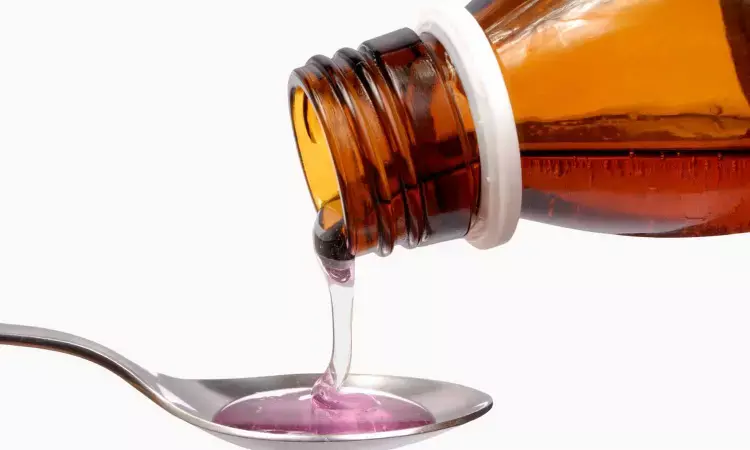- Home
- Medical news & Guidelines
- Anesthesiology
- Cardiology and CTVS
- Critical Care
- Dentistry
- Dermatology
- Diabetes and Endocrinology
- ENT
- Gastroenterology
- Medicine
- Nephrology
- Neurology
- Obstretics-Gynaecology
- Oncology
- Ophthalmology
- Orthopaedics
- Pediatrics-Neonatology
- Psychiatry
- Pulmonology
- Radiology
- Surgery
- Urology
- Laboratory Medicine
- Diet
- Nursing
- Paramedical
- Physiotherapy
- Health news
- Fact Check
- Bone Health Fact Check
- Brain Health Fact Check
- Cancer Related Fact Check
- Child Care Fact Check
- Dental and oral health fact check
- Diabetes and metabolic health fact check
- Diet and Nutrition Fact Check
- Eye and ENT Care Fact Check
- Fitness fact check
- Gut health fact check
- Heart health fact check
- Kidney health fact check
- Medical education fact check
- Men's health fact check
- Respiratory fact check
- Skin and hair care fact check
- Vaccine and Immunization fact check
- Women's health fact check
- AYUSH
- State News
- Andaman and Nicobar Islands
- Andhra Pradesh
- Arunachal Pradesh
- Assam
- Bihar
- Chandigarh
- Chattisgarh
- Dadra and Nagar Haveli
- Daman and Diu
- Delhi
- Goa
- Gujarat
- Haryana
- Himachal Pradesh
- Jammu & Kashmir
- Jharkhand
- Karnataka
- Kerala
- Ladakh
- Lakshadweep
- Madhya Pradesh
- Maharashtra
- Manipur
- Meghalaya
- Mizoram
- Nagaland
- Odisha
- Puducherry
- Punjab
- Rajasthan
- Sikkim
- Tamil Nadu
- Telangana
- Tripura
- Uttar Pradesh
- Uttrakhand
- West Bengal
- Medical Education
- Industry
India allows cough syrup firm linked to Uzbek deaths to re-open factory

New Delhi: India's northern state of Uttar Pradesh has permitted the resumption of most production at a factory owned by Marion Biotech, which produced cough syrups Uzbekistan linked to the deaths of 65 children last year, an order seen by Reuters shows.
The firm is among three Indian companies whose cough syrups the World Health Organization (WHO) and other agencies have linked to the deaths of 141 children in Uzbekistan, Gambia and Cameroon, in one of the world's worst such waves of poisoning.
"There is no known case of a lack of quality in other medicines manufactured by the firm," the drug controller of the state where Marion is based, and which cancelled the firm's licence in March, said in the most recent order.
"The appeal of the manufacturing firm is partially accepted," the official, Shashi Mohan Gupta, said in the Sept 14 order.
"Its permission to make products using propylene glycol (PG) is cancelled, and it is allowed to make and sell all other products."
Gupta declined to comment on the letter.
On Wednesday, he told Reuters that India's controller general of drugs, Rajeev Singh Raghuvanshi, had written to Marion Biotech to initiate a plan of corrective and preventive actions by the company.
Raghuvanshi and the company did not immediately respond to a request for comment.
The Marion factory in Uttar Pradesh was closed in March, after an analysis last year by Uzbekistan's health ministry of two cough syrups made by Marion, Ambronol and DOK-1 Max.
It showed they contained unacceptable amounts of toxins diethylene glycol (DEG) and ethylene glycol (EG), which are usually used in products not meant for human consumption.
Tests in January by an Indian government laboratory found 22 samples of Marion-made syrups were "adulterated and spurious," the country's drug controller said in March.
India's pharmaceuticals department told parliament that tests had also shown that a sample of propylene glycol (PG), an ingredient of cough syrups taken from Marion's factory contained EG.
After the company appealed to the state government against the decision, it was allowed to resume output on Aug. 11 of all products not containing PG, the Sept. 14 order shows.
Speaking on condition of anonymity, two other sources with knowledge of the matter told Reuters that the Marion factory remains closed for now, pending an inspection and a review of its paperwork.
Reuters has reported that DEG and EG have been used by unscrupulous actors as a substitute for propylene glycol because they are cheaper.
In June, the WHO told Reuters its working theory was that in 2021, when prices of propylene glycol spiked, one or more suppliers mixed the cheaper toxic liquids with the legitimate chemical.
Uzbek state prosecutors told a court in Tashkent that distributors of the contaminated Marion syrups paid officials a bribe of $33,000 to skip mandatory testing there.
The central Asian nation has put on trial 21 people - 20 Uzbeks and one Indian - for the deaths.
Read also: More Indian pharma cos in spotlight over contaminated syrup samples
Ruchika Sharma joined Medical Dialogue as an Correspondent for the Business Section in 2019. She covers all the updates in the Pharmaceutical field, Policy, Insurance, Business Healthcare, Medical News, Health News, Pharma News, Healthcare and Investment. She has completed her B.Com from Delhi University and then pursued postgraduation in M.Com. She can be contacted at editorial@medicaldialogues.in Contact no. 011-43720751


